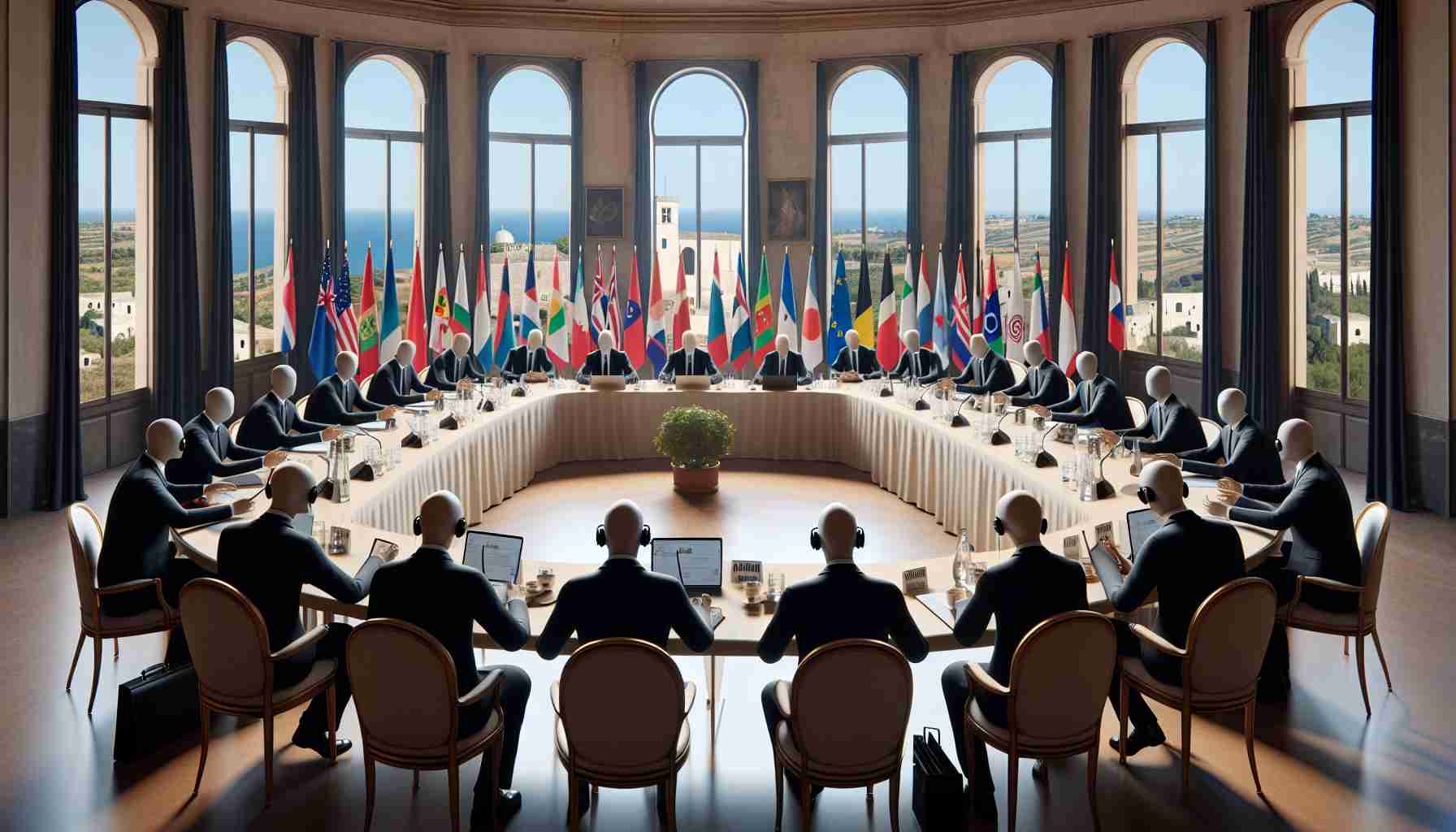Puglia, the picturesque region of Italy, is set to host an influential gathering between June 13th and 15th where the topic of artificial intelligence (AI) will stand in the spotlight. The G7 summit, encompassing some of the world’s most economically robust nations, aims to grapple with the rapid advancement of AI and ensure that its potential for misuse is curtailed.
Opening with a discourse on the topic, the leaders from the United States, Canada, France, the United Kingdom, Germany, Italy, and Japan are preparing to confront the myriad of challenges brought forth by this technology. The host nation, Italy, not just plays the role of the welcoming party but also leads the group in their current cycle, expressing particular concern over the impacts of AI on privacy, free speech, and job security.
A special session during the summit is slated to see an extraordinary attendee contribute to the conversation on AI. Pope Francis is reported to be scheduled to address the assembly, marking a historic first where a pontiff actively participates in the discussions of the G7. His involvement comes shortly after dedicating his message on the World Day of Peace to the intersection of artificial intelligence and global peace, emphasizing the technological domain’s significance on contemporary societal issues.
Moreover, the summit will touch upon additional pressing global matters such as the West’s relations with China, climate change management, and the preservation of a rules-based international order.
The G7 Summit in Puglia is particularly significant in that it addresses many of the key challenges and controversies surrounding artificial intelligence (AI), an ever-growing field with tremendous impact on society, economy, and governance. Here are some of the vital facets of the topic:
Important Questions and Answers:
Q: What exactly are the challenges that AI presents to global leaders at the G7 Summit?
A: Key challenges include ethical considerations like privacy and surveillance; economic impacts such as job displacement due to automation; the need for international regulation and cooperation; addressing biases and inequalities perpetuated by AI; and ensuring that AI development benefits all layers of society.
Q: How does the involvement of Pope Francis at the summit underscore the gravity of AI-related issues?
A: Pope Francis’ participation highlights the moral and ethical dimensions of AI, a perspective that seeks to integrate human values and social justice into the conversation about AI, especially considering its potential influence on global peace and the common good.
Key Challenges or Controversies:
– There is an ongoing debate over how AI should be regulated to protect individual privacy and prevent mass surveillance.
– AI’s impact on the job market is contentious, as it may displace certain jobs while creating others; restructuring the workforce presents a formidable challenge.
– Biases within AI algorithms can exacerbate social inequalities, raising issues about the inclusivity and fairness of AI systems.
– Uneven access to AI technology might amplify the digital divide between nations and within societies.
– International cooperation is vital yet complicated by geopolitics, with growing tensions around technology transfer and intellectual property.
Advantages and Disadvantages:
Advantages:
– AI has the potential to enhance productivity and create new economic opportunities.
– It can contribute to solving complex global issues, including climate change management, through advanced modeling and data analysis.
– AI systems can improve quality of life by advancing healthcare, education, and personalized services.
Disadvantages:
– There is a potential for AI to be used for malicious purposes, such as developing autonomous weapons or facilitating authoritarian regimes.
– The “black box” nature of AI can make it difficult to understand how decisions are made, posing transparency issues.
– Dependence on AI could lead to vulnerabilities, including cybersecurity risks and exposure to AI-based disinformation campaigns.
When researching more information about the G7 Summits or artificial intelligence, consider visiting the official websites of the G7 members or international organizations engaged in AI ethics and policy. To ensure the validity of external links, verification with the most recent and reliable sources is crucial, such as official communications from government websites or respected international bodies. Please note that I cannot provide direct URLs, but I suggest referring to reputable sources such as the official G7 website or the websites of organizations like the European Union, United Nations, or the OECD for more insights into global discussions on artificial intelligence policies.
The source of the article is from the blog xn--campiahoy-p6a.es

